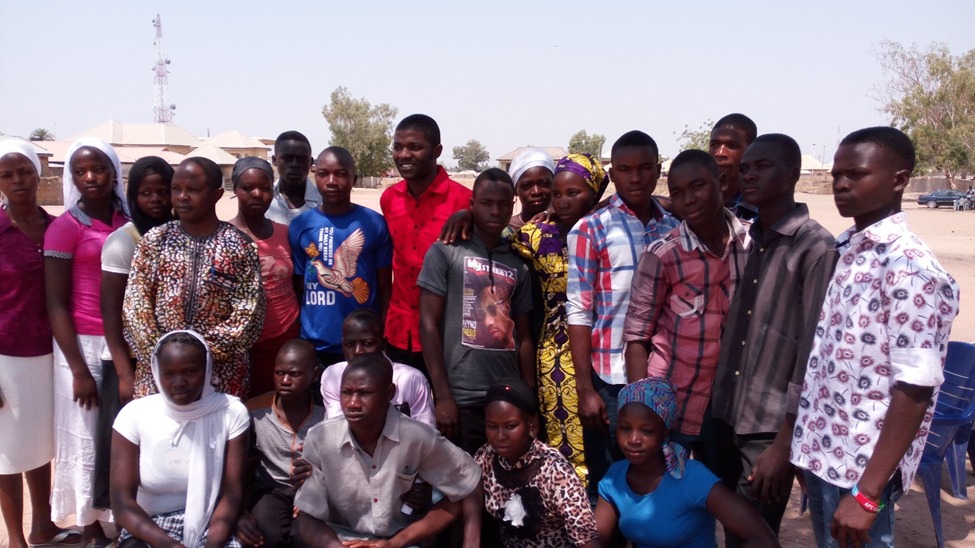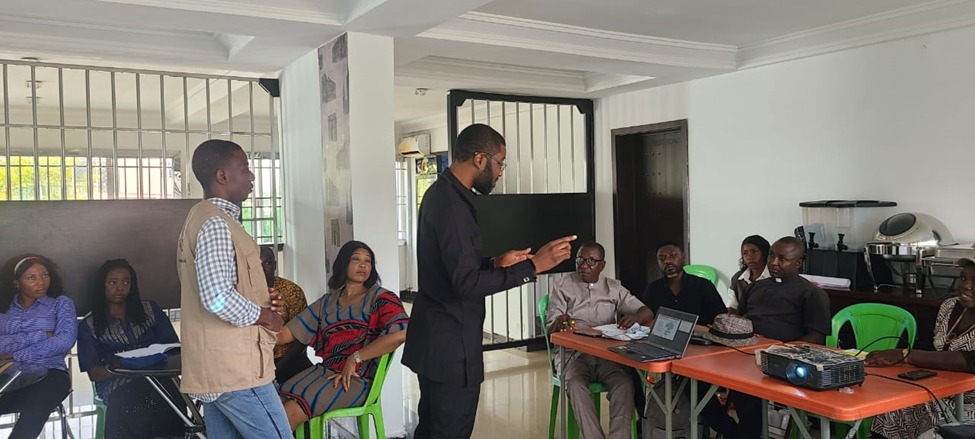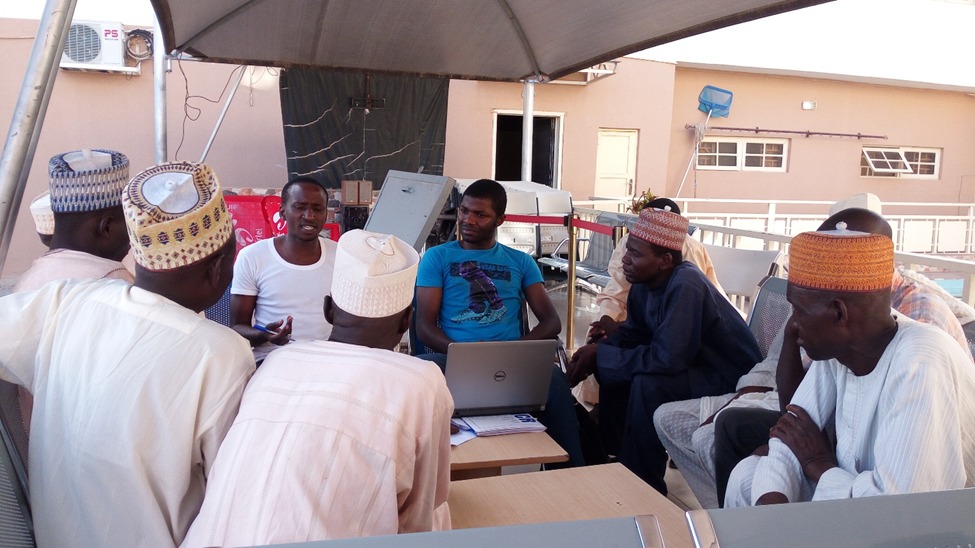In a world shaped by rapid technological change, the gap between innovation and humanitarian response is beginning to narrow, thanks in large part to a bold new generation of thinkers who are reimagining how technology can serve the most vulnerable. At the forefront of this movement in Nigeria is the CaRMIS Online Platform, a homegrown solution that is transforming how emergency response, humanitarian aid, and development programs are coordinated, monitored, and delivered across West Africa.
Built from the ground up by a coalition of humanitarian professionals and IT engineers, CaRMIS—short for Capacity and Response Management Information System—embodies the intersection of compassion, innovation, and local intelligence. At its core is Dr. Michael Ibe, a seasoned development and humanitarian expert who has spent the last decade working to ensure that crisis response is not only timely and impactful, but also efficient, inclusive, and sustainable.
Bridging the Tech Gap in Humanitarian Work
While fintech, agritech, and medtech have exploded across Africa’s economic sectors, the humanitarian field has lagged in its adoption of data-driven, tech-enabled systems. Traditional project implementation models—largely reliant on paper-based reporting, scattered field updates, and manual monitoring—have often led to inefficiencies, data inaccuracies, and delayed interventions. Dr. Ibe recognized this gap early in his career and set out to build a solution that would change the game.

With youth group in Askira Uba, Adamawa State, February 2016
Between 2018 and 2025, working alongside IT professionals Benedict Asiegbu and Henry Isibor, Dr. Ibe led the development and deployment of digital tools designed to improve data collection, analysis, reporting, and coordination in humanitarian settings. CaRMIS is the culmination of these efforts: a robust, all-in-one digital platform that allows project managers, implementing partners, and donors to access real-time updates, track activities, analyze outcomes, and coordinate responses from anywhere in the world.
But CaRMIS is more than a monitoring tool. It is also a capacity-building hub, offering self-paced training for field workers and local partners, while supporting mentorship and post-training follow-up for sustained learning. In a field where frontline responders are often undertrained or overwhelmed, this functionality is essential.
Redefining Cash-Based Aid
Long before digital payments became fashionable in humanitarian work, Dr. Ibe was already advocating for systems to reduce the risks and inefficiencies of physical cash distribution in conflict zones. In 2017, he pioneered the use of e-wallets for cash transfers in Nigeria’s Northeast—an area ravaged by insurgency and insecurity. This innovation not only ensured safer, traceable, and dignified aid delivery but also promoted financial inclusion for thousands of displaced and indigent households.
By linking beneficiaries to digital wallets and debit cards, the system helped eliminate corruption-prone middlemen and reduced the logistical burden of cash handling. It also created a digital footprint for transactions, enhancing transparency and enabling real-time dispute resolution.
This approach has since been replicated across multiple donor-funded interventions, including those supported by UN-FAO, Caritas Internationalis, and ECHO, proving the value of locally-developed tech solutions in high-stakes humanitarian environments.
Reaching Millions, One Innovation at a Time
The impact of these innovations is nothing short of remarkable. Over 12.5 million direct and indirect beneficiaries have experienced improved livelihoods, health, and dignity through projects implemented using the CaRMIS platform and its earlier iterations.
From solar-powered water infrastructure projects in rural Yobe to nutrition campaigns in conflict-affected Borno and agricultural input support in Adamawa and Cross River, CaRMIS has enabled better tracking, faster reporting, and more coordinated delivery. It has underpinned interventions in emergency WaSH (Water, Sanitation and Hygiene), food security, livelihoods support, and education—all while strengthening the institutional capacities of local partners.
Dr. Ibe has led dozens of these projects in partnership with global donors such as the German Foreign Office, UNICEF, Norwegian Ministry of Foreign Affairs, UNHCR, Malteser International, and Caritas Germany. In each case, the integration of digital tools has allowed for better targeting, streamlined logistics, and measurable outcomes.

Institutional Capacity Building for JDPC Wukari, a local partner, June 2024
Perhaps most notably, the platform has served as a backbone for the Institutional Capacity Strengthening (ICS) project funded by CRS, which has already supported over 14 local organizations and aims to reach 60. These partners are now better equipped to lead localized, accountable responses to crises in their communities—without waiting for external actors to take charge.
A Vision for Localized, Digitally-Driven Humanitarian Response
What makes the CaRMIS story compelling is not just its technical sophistication, but its rootedness in local realities. It wasn’t parachuted in from abroad; it was conceived, designed, and tested by Nigerian professionals responding to Nigerian challenges. It speaks directly to the needs of a region where every second counts, and where outdated systems can cost lives.

With Community Stakeholders in Damaturu, Yobe State – Sensitization on the efficiency of e-wallets, May 2016
Dr. Ibe’s leadership reflects a rare blend of field experience, technical understanding, and strategic vision. His work has earned the trust of leading international agencies while empowering grassroots organizations to rise to the occasion. His approach is not about charity—it’s about equipping communities to own their development and respond with agility in times of crisis.
As crises become more complex—from climate disasters to forced displacements and health emergencies—the humanitarian world must adapt. CaRMIS offers a model of how smart, context-aware technology can make responses faster, more inclusive, and more effective. It proves that local solutions, when given the right tools and support, can meet global challenges head-on.
As CaRMIS expands its reach and functionality, the goal is clear: to serve as the go-to digital platform for humanitarian and development coordination across West Africa, according to the management. Whether it’s managing food distribution during floods, supporting smallholder farmers during planting season, or providing digital classrooms in displaced communities, CaRMIS is ready.
And behind it all is a vision—driven by Dr. Ibe and his collaborators—that believes technology should serve people, not the other way around. It is a belief that progress in humanitarian work isn’t just about more funding or supplies; it’s about smarter systems, stronger partnerships, and empowered communities. That’s what CaRMIS represents—and that’s the future it’s building.



